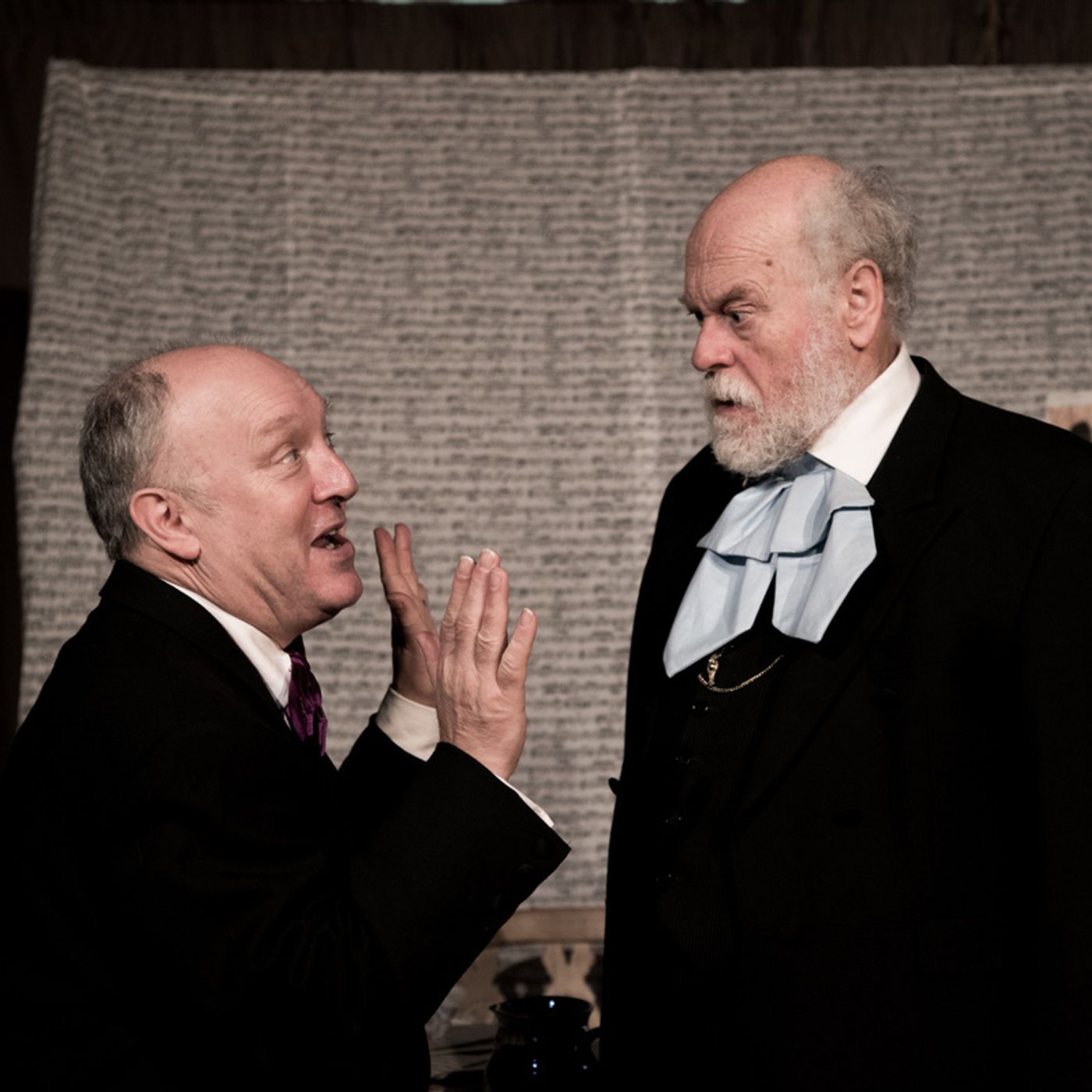Review: OYSTERS – ADELAIDE FRINGE 2019 at Bakehouse Theatre
 Reviewed by Barry Lenny, Tuesday 19th February 2019.
Reviewed by Barry Lenny, Tuesday 19th February 2019.
Johannes Brahms is attending a party, following the first performance of his Violin Concerto. The guests include Clara Schumann, as well as his good friend, Herzogenberg, the music critic, Eduard Hanslick, and the violinist, Josef Joachim. Directed by Amy Bonsall, Oysters features British actors, Nicholas Collett and Neil Salvage, who also wrote the script, Australian, Stefanie Rossi, and Korean violinist and actress, Ahram Min.
Collett has already won many Adelaide fans with his previous Fringe productions, Spitfire Solo, and Your Bard, whilst Salvage is making his first visit here; hopefully, the first of many. Both have worked at the highest levels of theatre in England and have impressive lists of achievements. Rossi has already gained an enviable reputation for her work and was the recipient of the Adelaide Critics Circle Award for Emerging Artist in December 2018. In great demand, she is also appearing in three other Fringe production, one of which follows immediately after Oysters every night; All Change, with Tim Marriott, and in March she will appear again in Judas.
It is hardly surprising that this talented foursome presented a superb piece of theatre, with Collett and Salvage playing multiple roles, Rossi appearing as Clara, and Min speaking through her violin as a sort of instrumental Greek Chorus, commenting on and driving the action with snippets of the music of Brahms.
Salvage, who also wrote the script, is a magnificent and convincing Brahms, commanding the stage with his presence. He also appears as Fritz, a comical butler, the only invented character. His third character is that of Fritz Simrock, the music publisher, in whom Salvage presents another well-developed and embodied character study.
Collett plays Heinrich von Herzogenberg, the composer and conductor hosting the party and desperately seeking approval of his compositions from Brahms, Eduard Hanslick, the sharp-tongued critic, and Josef Joachim, the insanely jealous violinist who mistakenly thinks that Brahms is having an affair with his wife. Quick changes of costume and character show Collett's great versatility and provide the audience with an opportunity to discover what a fine actor he is
At the time of this play, Clara is widowed and suffering arthritis, rendering her unable to play the piano and causing her to be bitter. Rossi, wearing a stunning black outfit provided by set and costume designer, Maddy Sinclair, and brought over from England, is truly wonderful as the prim and proper widow, with emotions bubbling away just below the surface that occasionally escape her control.
Min contributes subtle comments and influences through her facial expressions and wonderful violin playing, a clever and fascinating idea to enhance the production.
Lighting by Stephen Dean, a sound design by Paul Kissaun, and a very convincing wig for Brahms, by Lorraine Collett, add those all-important finishing touches to a great start to an evening of theatre, which was to be followed, for me, by two other plays: All Change, and The Professor. Book for all three and make a night of it, and enjoy a drink at the bar between shows.
Reader Reviews
Videos

